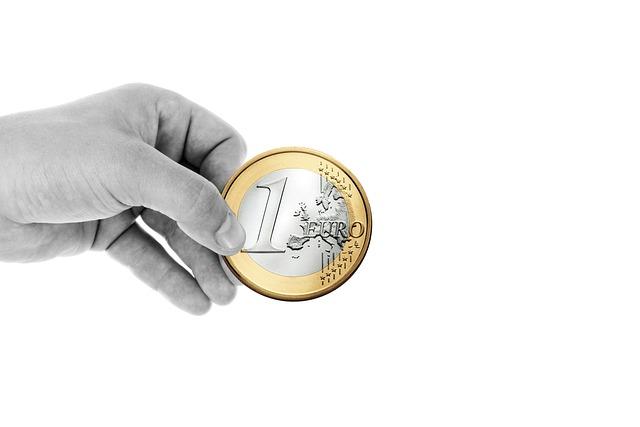Hey there,money newbies! whether you’re fresh out of college,just starting your first job,or simply looking to get a grip on your cash,diving into finance can feel like decoding an ancient language.But don’t worry – managing your money doesn’t have to be intricate or stressful. In this post, we’re breaking down Finance 101 wiht easy, no-nonsense tips that anyone can follow. Think of it as your friendly crash course to making your money work for you without the fancy jargon or confusing charts. Ready to take control of your cash and start building a solid financial future? LetS jump right in!
Getting a Grip on Your Budget without Losing Your Mind
Mastering your budget doesn’t have to feel like decoding an ancient language. Start small by tracking your income and expenses-you might be surprised where your money is really going! Use simple tools like a spreadsheet or budgeting apps that break down your spending visually. The key here is consistency, not perfection; reviewing your budget weekly helps you stay in control without getting overwhelmed.
Focus on creating a budget that works for your lifestyle, not one that feels like a punishment. Here are a few easy-to-adopt habits to keep your budget sane and sustainable:
- Automate: Set up automatic transfers to savings and bill payments to avoid late fees and impulsive spending.
- Envelope technique: Allocate cash for categories like groceries and entertainment to physically limit spending.
- Prioritize: Always cover essentials like rent and utilities first before splurging on extras.
| Budget Category | Monthly Allocation | Tip |
|---|---|---|
| Essentials | 50% | Think rent, utilities, groceries |
| Savings | 20% | Automate this for stress-free saving |
| Fun & Leisure | 15% | Allow guilt-free enjoyment! |
| Debt Repayment | 15% | Chisel away at high-interest debt first |
Smart Ways to Save Cash Even When You Think You Have None
When your wallet feels as light as a feather, its easy to think saving cash is impossible. but guess what? You don’t need a pile of money to start building up your savings. Begin by tweaking small daily habits that add up over time. For example, brewing your own coffee rather of grabbing one at a café can save you $3 to $5 a day. Swap paid streaming services for free alternatives or make the switch to generic brands when you shop. These little moves won’t cramp your lifestyle but will fatten your savings account without you noticing.
Another savvy move? Track your simple expenses in a quick weekly spending log. You’ll start spotting sneaky subscriptions or impulse buys that drain your finances. Here’s a quick glance at where your money might be slipping away:
| Expense | Weekly Cost | Save By |
|---|---|---|
| Takeout coffee | $15 | Make at home |
| Streaming subscriptions | $20 | Use free platforms |
| Impulse snacks | $10 | Pack from home |
By cutting just these three out, you’re looking at $45 extra cash in your pocket every week. Start small, stay consistent, and watch how these smart tweaks turn into real cash-no matter how tight your funds may seem!

Breaking Down Credit Scores and Why They Actually matter
think of your credit score as a financial report card that lenders use to decide if you’re trustworthy with money. it’s a three-digit number, usually between 300 and 850, that sums up your borrowing history, payment habits, and overall financial responsibility. The higher your score, the better your chances of snagging low-interest loans, credit cards with juicy perks, or even renting an apartment without drama. On the flip side, a low score can mean higher interest rates or outright rejection, which can make everyday money goals feel like climbing Everest in flip-flops.
So why does this number wield so much power? Here’s the deal-breaker list:
- Loan approval: Lenders glance at this number to judge your risk.
- Interest rates: Better scores = better deals, plain and simple.
- Credit card offers: Top scores unlock the best rewards.
- rental applications: Landlords peek at your score to decide if you’re reliable.
| Score Range | What It Means | Typical Outcome |
|---|---|---|
| 800 – 850 | Exceptional | Best rates & offers |
| 740 - 799 | Very good | Great terms & approvals |
| 670 – 739 | Good | Average interest rates |
| 580 – 669 | Fair | Higher interest, limited offers |
| 300 – 579 | Poor | Hard approvals, high costs |
Simple Tricks to Avoid Debt and Stay Debt-Free
Keeping your finances in check doesn’t have to be complicated. One of the easiest ways to avoid getting into debt is by forming good spending habits early on. Start by tracking your expenses-this simple step helps you see exactly where your money goes each month and spot any sneaky habits that could lead to overspending. Another useful trick is to create a realistic budget and stick to it like glue. When you know your limits, it’s easier to say “no” to impulse buys and temptations that don’t fit your financial goals.
Also, embracing a mindset of saving before spending can make a massive difference. Try using these easy strategies:
- Pay yourself first: Automatically transfer a small portion of your income to savings the moment you get paid.
- Use cash envelopes: Allocate physical cash for different spending categories to prevent overspending.
- Avoid credit card traps: Only use credit cards for planned purchases and pay off the balance monthly to dodge interest fees.
| Debt Trap | Simple Avoidance Trick |
|---|---|
| Impulse shopping | Wait 24 hours before buying |
| Minimum credit card payments | Pay full balance every month |
| Unplanned expenses | Emergency fund of 3 months’ expenses |
Investing Basics That Won’t Make Your Head Spin
Jumping into the world of investing might feel like trying to read a foreign language at first – but trust me, it doesn’t have to be complicated! The key is to start simple and focus on a few basic principles that set you up for success without overwhelming your brain. think of investing as planting seeds: with a little patience and consistency, your money can grow over time. First off, always diversify your investments to spread out risk – don’t put all your eggs in one basket. Next, get cozy with the idea of compound interest, which is like earning interest on your interest. This happens over time and can seriously boost your returns, even if you start small.
Here’s a quick cheat sheet of core investment types and what they mean for you, so you can decide where your money might want to hang out:
| Investment Type | Risk Level | Why You Might Like It |
|---|---|---|
| Stocks | Medium to High | Potential for high returns, ownership in companies |
| Bonds | Low to Medium | steady income, less volatile |
| Mutual Funds | Varies | Diversified, professionally managed |
| ETFs | Varies | Traded like stocks, diversified |
Remember, investing isn’t a get-rich-quick scheme – it’s about making smart moves over time and staying chill when markets fluctuate. Start with an amount you’re comfortable with and watch your confidence grow alongside your portfolio.
Q&A
Finance 101: easy money Tips for Total Newbies – Q&A
Q: I’m totally new to managing money. Where should I start?
A: Don’t worry, we all start somewhere! The best first step is simply tracking what you earn and spend.Use an app, a spreadsheet, or even a notebook-whatever feels easiest.Knowing where your money goes is the foundation for everything else.Q: How can I stop living paycheck to paycheck?
A: It’s all about budgeting and building a little cushion. Start by listing your monthly income and fixed expenses, then see what’s left over. Even saving $10 or $20 a week helps. Over time, that emergency fund can cover unexpected costs, so you don’t feel squeezed.
Q: Should I pay off debt or save money first?
A: Great question! Usually, paying off high-interest debt (like credit cards) should come first because it’s costing you more in the long run. Once that’s tackled, you can focus on saving or investing.Q: What about credit cards? Are they good or bad?
A: They can be both! Credit cards are great for building credit and earning perks-if you pay off the full balance each month. But if you carry a balance, those interest charges can add up fast.Use them wisely and don’t spend money you don’t have.
Q: Any simple ways to save money without feeling deprived?
A: Absolutely! Try cutting little expenses, like making coffee at home rather of buying daily. Also, set goals you care about-saving for a trip or a gadget makes it easier to skip small splurges. Automate savings so it happens without thinking.
Q: What’s the deal with investing? isn’t it complicated?
A: It can seem scary at first, but it doesn’t have to be. For beginners, low-cost index funds or robo-advisors are easy entry points. Start small and gradually learn as you go.investing helps your money grow faster than just saving.
Q: How do I stay motivated to keep my finances on track?
A: Celebrate the small wins! Paid off a credit card? Nice! Saved your first $100? Woohoo! Also, remind yourself why you’re doing this-whether it’s freedom, security, or a cool purchase down the road. The more you see progress, the easier it gets.
Q: Any final advice for total finance newbies?
A: Be patient and kind to yourself. Money stuff takes time to learn,and nobody’s perfect. Make a plan, stick with it, and don’t be afraid to ask for help or learn as you go. you’ve got this!
In Retrospect
And there you have it-finance doesn’t have to be scary or confusing! With these simple tips under your belt, you’re already way ahead of the game. Remember, building good money habits is all about taking small, consistent steps. So don’t stress about being perfect; just start somewhere and keep learning as you go. Your future self will thank you for making money work for you rather of the othre way around. Happy saving, budgeting, and investing-as financial freedom is totally within your reach! Until next time, keep it chill and keep that money mindset growing. 💸✨











